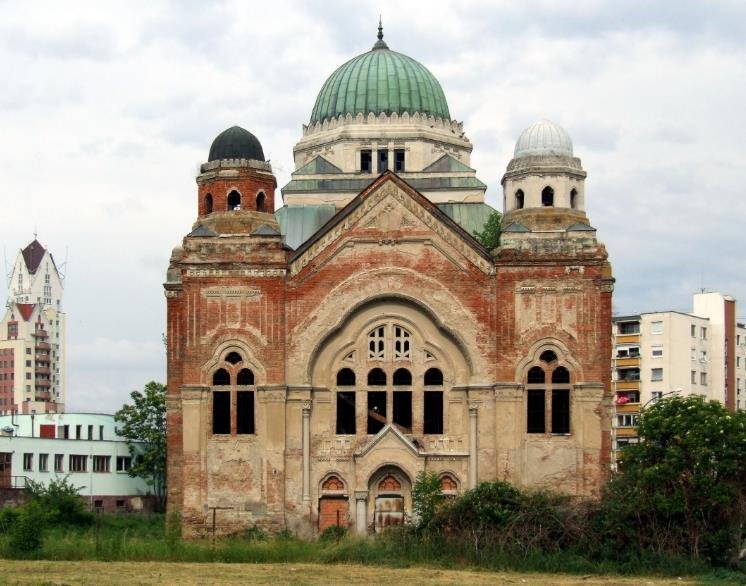The study of Cairo’s synagogues has unveiled a fascinating yet poignant chapter in Egyptian Jewish history. Once a thriving community, Egyptian Jews experienced a ‘Golden Age’ that abruptly ended in the mid-20th century. This period, marked by cultural and social integration, saw the Jewish community flourish under British rule. However, political upheavals and the establishment of the State of Israel led to mass emigration, leaving behind a rich but nearly forgotten heritage.
During the late 19th and early 20th centuries, Cairo’s Jewish community thrived. This period, often referred to as the ‘Golden Age,’ was characterized by significant cultural and social integration. Jews from various backgrounds, including Ashkenazi, Mizrahi, and Karaite, coexisted and contributed to the vibrant tapestry of Egyptian society. The influx of Ashkenazi Jews from Eastern Europe brought new traditions and practices, enriching the local Jewish culture.

The British colonial regime played a crucial role in this flourishing era. It provided European minorities, including Jews, with legal and economic rights, fostering an environment where the Jewish community could prosper. New neighborhoods and synagogues were established, reflecting the community’s growth and integration into the broader Egyptian society. This period also saw the construction of significant Jewish landmarks, such as the Ben Ezra Synagogue, which became a symbol of the community’s enduring legacy.
Despite the challenges, the Jewish community in Cairo maintained a strong sense of identity and cohesion. They established schools, cultural institutions, and social organizations that catered to their needs and preserved their heritage. This era of prosperity and cultural exchange left an indelible mark on Cairo’s history, showcasing the Jewish community’s resilience and adaptability.
The Sudden Decline
The mid-20th century brought about dramatic changes for Cairo’s Jewish community. The establishment of the State of Israel in 1948 and subsequent political tensions in the region led to a wave of anti-Semitic sentiments and policies. These developments forced many Jews to leave Egypt, seeking refuge in Israel, Europe, and the Americas. The once-thriving community dwindled rapidly, leaving behind a small, aging population.
The Egyptian government’s stance towards its Jewish citizens shifted significantly during this period. Nationalization policies and political unrest further marginalized the Jewish community, stripping them of their economic and social standing. Synagogues and Jewish institutions fell into disrepair, and many were abandoned as their congregants emigrated. The vibrant Jewish life that once characterized Cairo became a distant memory.
Despite these challenges, the remaining Jewish community in Cairo continued to preserve their heritage. They maintained synagogues and cemeteries, ensuring that the legacy of their ancestors would not be forgotten. However, the community’s decline was inevitable, and by the late 20th century, only a handful of Jews remained in Cairo, struggling to keep their traditions alive.
Rediscovering the Past
In recent years, there has been a renewed interest in Cairo’s Jewish heritage. Scholars and historians have undertaken extensive research to document and preserve the remnants of this once-thriving community. One such effort is the book “Sacred Places Tell Tales: Jewish Life and Heritage in Modern Cairo” by Prof. Yoram Meital. This work provides a comprehensive account of the Jewish community’s history, highlighting their contributions to Egyptian society and the challenges they faced.
The restoration of historic synagogues, such as the Ben Ezra Synagogue, has also played a crucial role in preserving Jewish heritage in Cairo. These efforts have not only safeguarded architectural landmarks but also brought attention to the rich cultural history of Egyptian Jewry. The Egyptian government, recognizing the historical significance of these sites, has supported restoration projects, ensuring that future generations can learn about this important chapter in Egypt’s history.
The rediscovery of Cairo’s Jewish past serves as a reminder of the city’s diverse cultural heritage. It highlights the contributions of the Jewish community to Egypt’s social, cultural, and economic fabric. As scholars continue to uncover and document this history, it is hoped that the legacy of Cairo’s Jewish ‘Golden Age’ will be remembered and celebrated for years to come.
